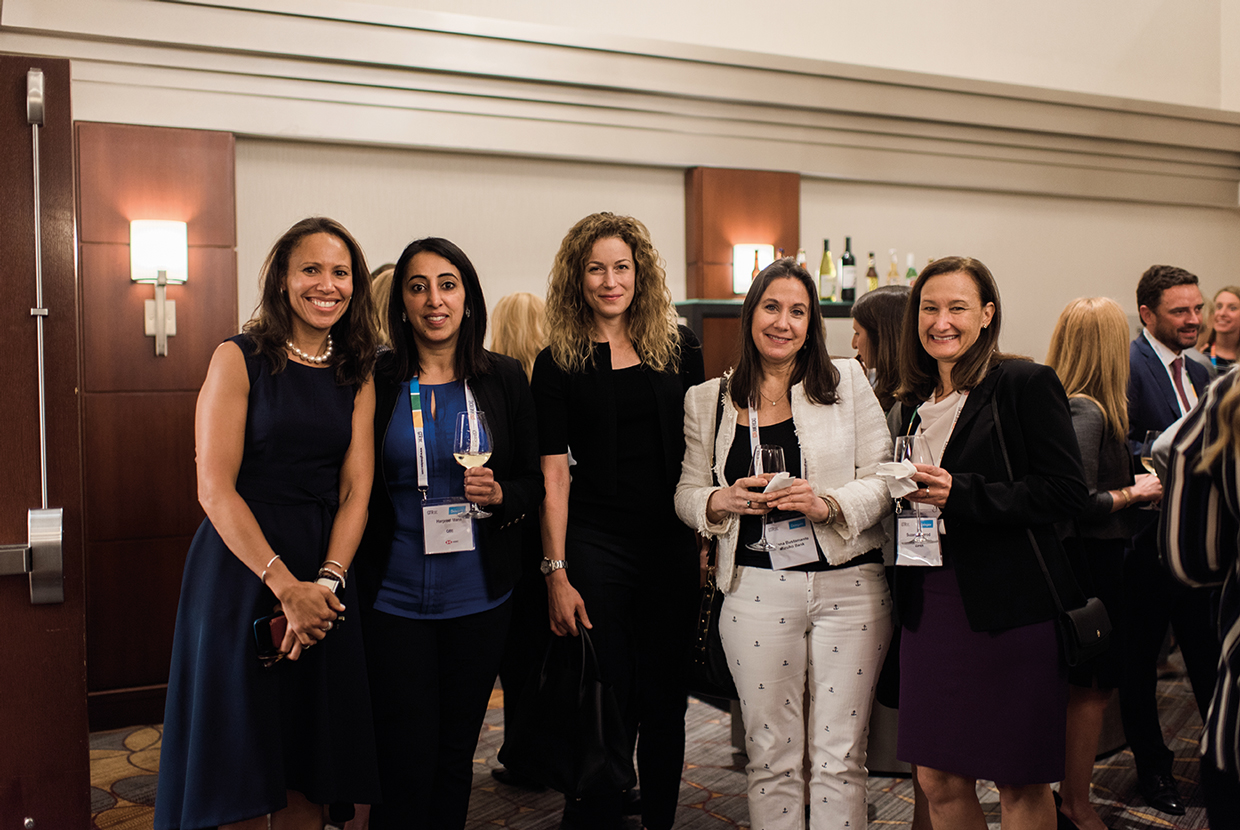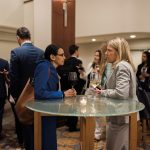Organisations in trade finance are not doing enough to foster talent, encourage diversity and achieve inclusion. At GTR’s Women in Trade Finance event in Chicago, speakers voiced their frustrations with HR processes and addressed ways in which individuals can drive change. Shannon Manders reports.
In a world of disintermediation and disruption, the need for diversity has never been more important. In Chicago in June, GTR assembled a panel of women from various fields within trade finance to talk about how the industry can bring about this change. Although there are exceptions, most organisations within the world of trade finance are not as driven towards diversity as people would like them to be.
“When I look at the industry, there’s definitely work to do. You go to some of these conferences and it is still predominantly male,” said Tracy Redfern, HSBC senior vice-president and US head of coverage, west.
Although large financial institutions like HSBC have come a long way in increasing their female representation in the global workforce, the banking sector in general needs to do a “better job” in actively employing, retaining and promoting women, not just in operational roles, but at senior leadership and board level, said Redfern.
It’s an area where a lot of large technology companies, in which there are similar hierarchical structures, are failing too: the tech industry’s well-documented “bro culture” has seen Silicon Valley reluctant to make even simple moves towards equality.
But the issue extends beyond that. “There are a number of companies not based in Silicon Valley where this gap still exists and inclusion really needs to progress further,” said Eileen Lowry, global programme director of IBM Blockchain Garage. She was quick to note that IBM, where diversity has been a “staple component for decades”, is not one of them.
“I’m very fortunate in that I work at a company where not only is my CEO and chairman a female – Ginni Rometty – but so is my senior vice-president, general manager and the head of our ecosystem – Bridget van Kralingen,” Lowry said.
Nevertheless, the issue of equality has permeated the world of blockchain, where she believes there are “not enough women”. As a result, she knows most women in this space by name.
What can be done to shift the inclusion conversation? The panellists agreed that while organisations have a crucial role to play, a culture change must also be brought about by individuals themselves.
“It’s up to us as individuals to educate and work with our colleagues,” said Redfern. “At the end of the day, the majority are white and male so if we don’t start thinking differently, nothing’s ever going to change.”
Within organisations, hiring strategies also require a rethink to diversify the pools of talent.
“You can’t hire diverse talent unless they’re part of the candidate pool. That’s an issue when HR shows you 10 resumes, and you get 10 men,” said Redfern, adding that she has previously asked her HR department to expand their search. “I believe there is a deep pool of talented women who want to be in trade.”
The speakers made the point that targeting diverse teams requires patience among HR colleagues because it takes more time to find the right person.
“You can’t take the first pool of candidates that you get and pick somebody – because the right person may not be in that pool,” said Alisa DiCaprio, head of research and global trade strategy at R3. “The women are there – it’s just that it’s going to take more time and effort to find these talented candidates.”
But it’s about more than just shortlisting, according to Redfern: most people, she said, will have preconceived ideas about the type of person they’re looking to hire. “It really is about changing the behaviour and thought process of people at senior levels.”
Audience Q&A
The audience in Chicago (split almost equally between men and women) had a number of pertinent questions for the panellists.
Q: What one thing related to gender diversity would you like to see change in the next few years?
DiCaprio: I want to see leadership positions that are accessible to all women, and not just the best and brightest. Men of varying skill levels are often afforded not just leadership roles, but also leeway to rise to the level of skill they demand. They are given the benefit of the doubt to perform, whereas women are expected to have proven themselves worthy and capable long before they’re given the same opportunity. We live in a world where women have to be exceptional to compete with average men for high-level positions. Show me a world in which an average woman can have the same expectation of career success as an average man. Lowry: Whether it’s one year, two years, five or 10 years from now: a phrase that I like to use with my older sister is to wear your confidence cape. I can’t tell you how often I hear about females’ lack of confidence in whatever they’re doing, even though they may be a rockstar at their job. So for me, it would be that each and every day, a woman puts on her confidence cape and has the confidence to speak up in a meeting, sit at the table, lead the meeting, whatever the case may be.
Q: Sometimes in the workplace women themselves are biased against other women. How can that be addressed?
Redfern: I’m disappointed when I see a senior-level woman who has come through the ranks, been promoted and does not try to pay it forward by inspiring and mentoring other women. On the other hand, I’ve worked for many fantastic women, who have sponsored me, and who have been fabulous. I would also like to see fewer women who rise up in the ranks believing that they have to change their personality to be accepted amongst their male colleagues.
Q: How can I, as a white male, help in the advocacy for women and women of colour in my organisation?
Redfern: You can come and work on my team, first of all. You’re already thinking outside the box. I would encourage you to join employee resource groups such as African-American and women’s networks. I am actively involved in an HSBC-run programme called Project Reciprocate, where senior level African-Americans mentor their white peers. By getting involved in these networks it gets you closer to understanding and networking with different people. You may learn that you have an unconscious bias you aren’t even aware of.
Reading is also very important. We tend to read the same types of books consistently because we like a particular author. Read somebody different than what you’re used to. Read an African author, get a different view – that can also help change perspective.
Q: Since the #metoo movement, I have found that men are a little less willing to go out to lunch, one-on-one. Is that crazy? Has anyone else had the same observation?
Redfern: There’s no doubt in my mind that the #metoo movement has made people far more aware. The balance we need to strike is to harness its power as a force for positive change without creating a new fear culture. I can think of a couple of instances recently where female friends have observed that male colleagues are no longer willing to sit down, collaborate or have a coffee one-on-one as they used to. They’ve become more distant. So we need to take #metoo forward in the right way.












